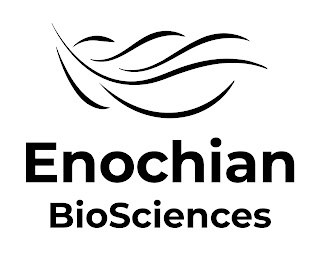By: Jonathan J. Pena, MSW, Licensed Clinical Social Work Associate (LCSWA)
In the fall of 2003, I was sitting in my doctor’s office anxiously waiting for the results of my recent lab blood test. My body was partially frozen by the all of the “what-ifs” that were running through my mind, but also by the look my friend gave me a week prior as he said, “you don’t look right, you need to see a doctor.” A random glance bestowed upon me a level of fear that I had never before experienced in my life. The doctor walks in and without hesitation says that my HIV is out of control and I have full blown AIDS. He scribbled something on a pad, ripped the paper off and said, “here, start taking this and I’ll see you in three months.” What he gave me was a prescription for Atripla.
For some people living with HIV/AIDS, the idea of taking antiretroviral therapy for the first time can be an overwhelming thought process. While antiretroviral medication has made significant improvements since the days of AZT in the late 1980s, its inception had left a dark cloud of mistrust, fear of horrible side effects, and even death, when the time came for me to trust modern medicine to save my life. We know today, that antiretroviral medications are largely effective in fighting the virus so that people living with HIV/AIDS can achieve viral suppression and become undetectable.
The battle to end HIV/AIDS continues. Enochian BioSciences Inc, a company that concentrates in gene-modified cellular and immune therapies in infectious diseases and cancer, announced earlier this year on June 14th, that the U.S. Food & Drug Administration had accepted a “pre-investigational new drug request for a potential treatment for HIV.”[1]
 |
| Photo Source: Enochian BioSciences |
This request was positioned by the findings of a 54-year-old man living with HIV who obtained viral control of the virus for 255 days with Natural Killer and Gamma Delta T-cells treatment.[2] This is a remarkable discovery as the man was previously unable to achieve suppression through antiretroviral medication. In this single case study, the Gamma Delta T-cells are a targeted interest in this treatment as it may be a crucial factor in viral control. Of course, this case study needs to be expanded to include how those living with HIV/AIDS who are virally suppressed by taking antiretroviral medication react to this new potential treatment
This news certainly ushers in a wave of excitement because the battle to end HIV/AIDS is a longstanding fight. However, it does come with concerns.
Stated Jen Laws, President of Policy Candy LLC, and ADAP Advocacy Association board member: “On the policy front, I worry about costs, continuity of care, and program design. Part of what's happened since the advent of single pill regimens and expanded medical competency making HIV a manageable chronic illness is, in general, our life expectancy has grown to be equivalent or longer than the general population. Regular doctor visits to maintain our prescriptions has meant we're more on top of our health than some other populations. It's a side benefit, if you will, that I think we might lose with a near once-yearly therapy.”
I echo these concerns with a great deal of emphasis. The landscape of HIV care will undoubtably change, as mentioned by Jen Laws, so it is crucial to continue to bridge the gap between affordability and accessibility when looking at the spectrum of continuity of care. Program development needs to echo effective public policy that is deliberate in representing the needs of those living with HIV/AIDS, especially in low-income communities. Additionally, healthcare employees, like social workers, will need flex their superpowers in order to maintain the vigilance that communities need to have in regard to their medical needs.
 |
| Photo Source: Vanguard |
This new case study certainly is promising but the battle to End the Epidemic is not over, and that message needs to be remembered and conveyed continuously. “We've been chasing this goal for 40 years and the emotional ups and downs that comes with hopeful therapies can be challenging, individually and collectively. Part of what I think drives some policy makers to think 'HIV is over' is the fairly routine headlines of medical advancements - whether they pan out or not,” Laws additionally commented.
As a person living with HIV/AIDS for the past 18 years, I have dreamed about an end to the epidemic ever since I starred at my prescription slip for Atripla all those years ago. I imagine that many, if not all, others living with HIV feel the same. The culmination of fear, struggle, achievements and hope battling HIV/AIDS, needs to be kept in focused. Complacency is not a state of being that we need to harbor, as it can begin to halt or undo the strides that have been accomplished over decades of vigorous work within HIV/AIDS care. We are not done, yet.
Disclaimer: Guest blogs do not necessarily reflect the views of the ADAP Advocacy Association, but rather they provide a neutral platform whereby the author serves to promote open, honest discussion about public health-related issues and updates.
[1] Enochian Bioscience (2021, June 14). Enochian BioSciences Announces FDA Acceptance of Pre-IND Request For Potential HIV Cure. Yahoo! Finance. Retrieved online at https://finance.yahoo.com/news/enochian-biosciences-announces-fda-acceptance-110000386.html.
No comments:
Post a Comment